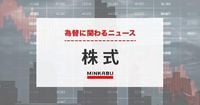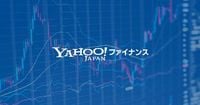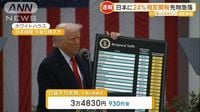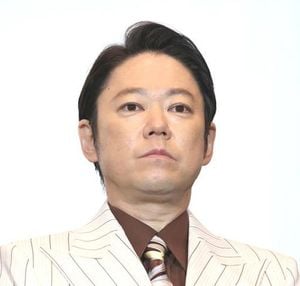The Nikkei Average Futures Plummet Below 34,000 Yen
Concerns Over Trump's Reciprocal Tariffs Drive Market Downward
On April 3, 2025, the Nikkei average futures fell below the critical threshold of 34,000 yen, marking a significant decline in the Japanese stock market. This drop follows the announcement of reciprocal tariffs by the Trump administration, which has raised alarm among investors and analysts alike.
According to reports, the futures trading for the Nikkei average was recorded at 34,830 yen early in the morning, reflecting a sharp decline of over 900 yen from the previous day's closing price of 35,725 yen. This recent downturn signifies a drop of approximately 3,300 yen since the beginning of President Trump’s administration, when the Nikkei average stock price was at a robust 39,027 yen.
The announcement of tariffs has sent shockwaves through the market, causing widespread concern among investors. The Trump administration's plans for reciprocal tariffs were detailed in a statement where President Trump noted, "I am about to sign a historic executive order imposing reciprocal tariffs on countries that do not treat us fairly." This declaration came on the heels of growing tensions over trade policies, particularly regarding the European Union and China.
In late February, fears surrounding tariffs imposed on the EU and additional tariffs on China resulted in a temporary decline of over 1,000 yen in the Nikkei average. Furthermore, as recently as the end of March, apprehensions about automobile tariffs led to a staggering drop of more than 1,500 yen, highlighting the volatility of the market in response to international trade developments.
Analysts are closely monitoring the situation as the implications of these tariffs could extend beyond Japan's borders, affecting global markets. The Dow Jones Industrial Average in the New York market also reflects similar trends, having fallen from $44,025 at the start of Trump's presidency to a current decrease of about $2,000. This correlation suggests a ripple effect, where U.S. market fluctuations influence investor sentiment in Japan and vice versa.
With the Nikkei average futures now dipping below the 34,000 yen mark, investors are left to grapple with the potential long-term effects of these tariff policies. The market's reaction indicates a lack of confidence in the current economic direction, prompting many to reassess their investment strategies amidst these turbulent times.
As the situation continues to unfold, economic experts are urging caution. The uncertainty surrounding trade relations and the potential for retaliatory measures from affected countries could further exacerbate market instability. Investors are advised to stay informed and consider diversifying their portfolios to mitigate risks associated with such unpredictable market conditions.
In summary, the Nikkei average futures have experienced a notable decline due to the announcement of reciprocal tariffs by the Trump administration, which has created an atmosphere of uncertainty in the market. As investors react to these developments, the implications for both Japan and the global economy remain to be seen.






